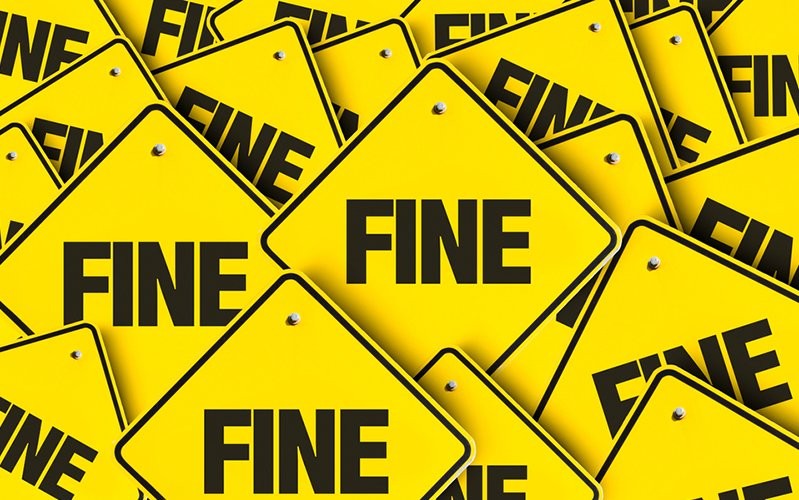BLOG
HSE criticised for using debt collection firms to carry out COVID-19 spot checks

Staff from private sector firms have been carrying out COVID-19 workplace spot checks on behalf of the Health and Safety Executive (HSE) – for the first time in its history.
In an attempt to bolster its workforce during the pandemic, in December, the HSE awarded contracts worth a total of £7 million to two debt-collection firms, Marston Holdings and CDER. The £7 million is the single largest spend from the £14 million emergency funding awarded to the HSE by the government last year for COVID-related enforcement.
The debt-collection firms’ operatives, known as “spot-check support officers”, carry letters saying they are authorised to carry out site inspections. On in-person visits, the operatives are only warranted to look at COVID security arrangements, such as masks, sanitation, two-metre segregation and bubble arrangements. They cannot take any enforcement action or issue a Fee for Intervention (FFI) notice – apparent breaches are referred to the HSE for further action.
As of 1 March 2021, an HSE spokesperson said “support officers” had carried out 44,000 spot checks at business premises across all industries and all areas of Great Britain. The HSE says the chosen firms have “extensive field forces” in England, Scotland and Wales and have worked for organisations “across the public sector”. The regulator stresses that the firms were selected on the basis of “their skills, infrastructure, staff and expertise”.
However, Prospect, a union representing HSE inspectors, has criticised the move. The union says the support officers are an inadequate replacement for personnel the HSE has lost over the last decade as a result of budget cuts. The use of private firms to carry out “COVID secure” assessments is also being questioned by employers and their legal advisers, with concerns that staff at the debt collection firms are not best qualified for the role. Indeed, the selected firms are normally contracted by local authorities, the courts, landlords, utility services and others, to enforce payment of assorted civil debts, from court judgments and parking fines to unpaid bills.
The HSE is also understood to have hired services provider Civica to run a telephone-based “spot check” service and COVID-19 hotline for reporting alleged guidance breaches.
Do you need support?
Speak to us for an honest, no obligation chat on:
0345 226 8393 Lines are open 9am – 5pm
Never mind the quantity – what’s the quality?
The number of spot inspections has notably increased this year. However, Nick Wilson, Director of Health & Safety Services at Ellis Whittam, believes the focus should be on the quality rather than quantity of the checks. Like many health and safety professionals, he fears that the outsourced hires don’t bring the same rigour to the checking role as HSE inspectors historically have.
As a former HSE inspector himself, Nick says: “You can’t reasonably expect debt collection firms to be a substitute for all the years of experience that qualified HSE inspectors have. While clients are undoubtedly seeing more HSE visits, many are commenting that they are not as rigorous as previous HSE inspections.”
This sentiment has been echoed by General secretary of Prospect, Mike Clancy. Labelling the private firm inspections, “low quality tick-box checks”, Mr Clancy says they further highlight the extent to which cuts have plagued the HSE since 2010. Indeed, the number of:
- HSE inspectors fell from 1,342 in April 2010 to 1,059 “inspectors and visiting inspectors” in 2019/2020.
- Court cases brought by the HSE fell from 711 in 2015/16 to just 355 in 2019/20.
Mr Clancy comments that the £14 million emergency funding isn’t going to be enough and that “A world-class safety regime cannot be delivered on the cheap”.
The HSE’s outsourcing comes at a time when it faces a financial shortfall due to the pandemic. The HSE’s annual report cautions that the crisis will have a “material” effect on its income – from FFI and providing services to other enforcement agencies such as DEFRA.
Meanwhile, the HSE has defended the move, claiming: “The introduction of proactive spot check calls and visits during the pandemic has allowed us to significantly scale up our proactive work to check, support and advise businesses on the implementation of the Public Health Safer Workplace guidance whilst supporting local authorities and the sectors they regulate, and responding rapidly to local outbreaks.”
The regulator adds: “A key benefit of this approach is that it allows our highly experienced inspectors to focus on more complex COVID-19 work, in addition to investigating reported concerns and investigating incidents”.
Ian Harvey, Head of Compliance, GFM Ltd
Not confident in your compliance?
No matter who’s conducting them, HSE spot checks can be daunting, and it’s best to plan ahead. At Ellis Whittam, we help employers to put in place all the necessary arrangements required under law, and will work with you to maintain compliance through ongoing support and award-winning software. That way, you can not only keep people safe but also dramatically improve your chances of a pain-free inspection.
Sign up for the latest news & insights
Resources
Latest News & Insights

5 times schools were prosecuted for health and safety failings in 2023/24
BLOG Written on 22 July 2024 In recent years, the importance of stringent health and safety measures in educational institutions has become increasingly apparent. Over

King’s Speech 2024 | 2 new employment Bills announced
BLOG Written on 18 July 2024 The 2024 general election saw the Labour Party return to UK Government for the first time in 14 years.

Managing misconduct | When is it safe to suspend?
BLOG Written by Angela Carter on 12 July 2024 When dealing with employee misconduct, it is sometimes appropriate to suspend an employee with full pay

Workplace fatalities | 6 key takeaways from the HSE’s 2023/24 statistics
BLOG Written on 5 July 2024 New statistics from the Health and Safety Executive (HSE) show that workplaces in Great Britain are no safer than

How a Labour government could impact probationary periods
BLOG Labour has pledged to expand the basic rights that are available to all workers from day one. This includes the right to parental leave, sick

TUPE 2024 | Simplified consultation rules for small businesses
BLOG Written by Susie Lockheart on 1 July 2024 The Employment Rights (Amendment, Revocation and Transitional Provisions) Regulations, which took effect on 1 January 2024,

Celebrating Pride Month | Creating inclusive recruitment processes
BLOG Written by Danielle Fargnoli on 26 June 2024 June is Pride Month, a time to celebrate the LGBTQ+ community and recognise the ongoing challenges

Collective redundancies | How the concept of “establishment” could change under a Labour government
BLOG Written by Lesley Rennie on 10 June 2024 Given the UK’s challenging economic climate, many organisations are seeking ways to reduce costs. This often

Social media in the workplace | Navigating the legal landscape
BLOG Written on 5 June 2024 Social media has transformed the way we communicate, allowing individuals to share their thoughts and opinions with a vast








